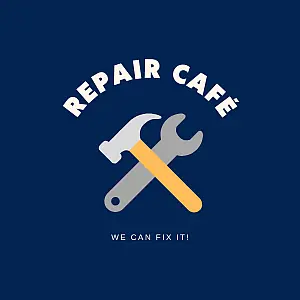
This past April 16th, Ursinus held its first ever Repair Cafe. Hosted by Professor Brie Berry’s Circular Economies class, this event strived to emphasize the environmental importance of fixing what’s broken. In our culture of convenience, we often fail to properly care for and repair our belongings, instead giving in to the urge to buy something new to replace what we already have. This event was a successful pilot event for what the students and professor hope will become an Ursinus commonplace. Not only is a repair cafe an important tool for protecting the environment, but it is also financially resourceful. One student who helped to organize the event, Lauren Sieczkowski, explained that “Beyond just the waste aspect of the Repair Cafe, it also allows for individuals to learn valuable life skills and have a sense of autonomy over their items. [Learning] to repair is a valuable and rewarding skillset.” A Repair Cafe creates a sense of responsibility for our belongings; they are ours to look after. Vienna Gurev, another student who helped organize the event, commented, “Repair skills are being taught less and less because companies want us to throw out broken things and buy new things, which ultimately depletes our hard-earned money. We can resist this by learning how to fix our current items, which is much easier than you’d think.”
Despite the practicality of learning to sew, mend, and fix, many of us don’t practice these skills. Luckily, our campus has several skilled students who were recruited for this event in the weeks leading up to it. The importance of a repair cafe is not only that the item is fixed, but that the students walk away with knowledge of how to fix that item for the future. A repair cafe is a viable way for a community to share knowledge with one another that will benefit the campus as a whole. This event was wonderfully successful, with students bringing in items from potted plants and jewelry to calculators and game controllers. The work leading up to the success of this event involved advertising, recruitment, and planning. According to Vienna, the class was divided into “marketing, recruitment, and logistics.” In the weeks leading up to the cafe, students marketed with creative flyers and social media posts. In the end, they certainly conquered the goal, and they hope that this is just a starting point.
Lauren shared her hope to “make this an annual event” and said that they “also see a world in which this is implemented into our BearShare space as recurring pop-ups or something that is available daily. The possibilities for growth are endless!” Vienna agreed that she would “love for them to happen every semester!” The attendees who left this event were both satisfied with their fixed items and with new skills to apply in their own life. I feel confident that both the recruited fixers and the attendees would continue to contribute and benefit from a more consistent repair cafe, and I am excited to see how new sustainability efforts unfold on campus. “None of it would be possible without the vision and help of Dr. Berry and the ENVS department,” Vienna said.
